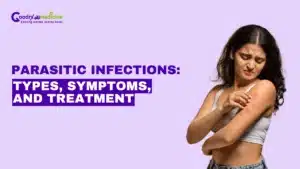“Young people can have high blood pressure too,” says CDC
You can be in the early years of your life and still be diagnosed with high blood pressure. Gone are the days when medical complications like high blood pressure were just a disease that old people had.
As the years have gone by, advancement in technology has given great ease to mankind but has also increased the risk of various chronic diseases like high blood pressure.
High blood pressure is defined as a chronic disease that is characterized by the increased force of blood against the arterial walls.
High blood pressure is classified as a major risk factor for severe health complications like heart attack, stroke, heart failure, kidney disease and vascular dementia. It is estimated by medical researchers that nearly half of the adult population in the United States is living with high blood pressure.
It is important to spread more awareness about the risk factor of high blood pressure among people to reduce the mortality rate, which stands at 7.6 million deaths per annum worldwide currently.
High blood pressure can occur at any particular age. It has been estimated by the Centers For Disease Control and Prevention that one in four adults who are between the age group of 20 and 44 can have high blood pressure.
How Do You Know If You Are Experiencing High Blood pressure?
High blood pressure is a disease that does not show any strong proof of existence unless the condition progresses further. It is highly important to keep a regular check on the blood pressure levels to avert the risk of life-threatening complications.
One should lookout for the following signs to avoid the risk factors of high blood pressure.
- Nausea and vomiting
- Irregular heartbeat
- Shortness of breath
- Nosebleeds
- Chest pain
- Fatigue and tiredness
- Severe headaches
- Blood in urine
Consult your general physician if such high blood pressure symptoms do arise. Getting the necessary treatment in time can help in averting the risk of severe complications.
Risk factors of high blood pressure can also be managed by bringing in certain lifestyle changes.
What Are The Risk Factors Of High Blood Pressure?
One becomes more prone to experience high blood pressure due to certain risk factors. High blood pressure is defined as a chronic disease that requires proper medical treatment to become more manageable.
Keeping a routine check on high blood pressure symptoms can help prevent medical complications like heart attack and stroke. Adopting healthy eating habits along with a regular workout routine can help lower the risk factors of high blood pressure.
Age factor:
Though high blood pressure can occur at any particular age, the risk of developing the disease increases as one gets older.
It is estimated by researchers that the risk of getting high blood pressure increases when one hits the age of 45 years. This is one of the risk factors for high blood pressure that is not in the control of an individual.
Obesity factor:
There is a direct correlation between the increase in weight and high blood pressure.
Excessive weight in the body can put excessive pressure on the heart to circulate blood throughout the body. Accumulating too much weight around the abdomen region can severely impact the internal organs and increase the various risk factors of high blood pressure that can result in life-threatening medical complications.
Dietary factor:
Taking a diet that is high in salt, sugar, and saturated fats can lead to increased high blood pressure.
One should avoid taking in excessive calories that lead to direct fat accumulation if one does not exercise for them.
By controlling unhealthy eating habits, one can manage high blood pressure efficiently. Risk factors of high blood pressure like obesity and diet are in complete control of an individual.
Smoking factor:
The presence of a chemical substance called nicotine in cigarette smoke is a big part of the problem and is known to increase blood pressure and heart rate.
Smoking increases the blood pressure and heart rate in the body. It also narrows the arteries and hardens their walls, resulting in the blood being more likely to clot.
Smoking is a risk factor for high blood pressure that is completely preventable.
Chronic conditions:
High blood pressure occurs when the force of blood against the arterial walls escalates.
Chronic diseases like diabetes, kidney infections, obstructive sleep apnea and kidney diseases are known to trigger the symptoms of high blood pressure. Getting the necessary treatment for such medical complications can make this risk factor of high blood pressure more manageable.
Alcohol intake:
Taking in excessive alcohol can increase the amount of calcium that binds to the blood vessels.
This leads to increased sensitivity of the blood vessels to compounds that constrict them. At extreme levels of intoxication, alcohol works as a vasoconstrictor, causing veins and blood vessels to tighten and constrict. Constricting the blood vessels leads to high blood pressure.
Such a risk factor of high blood pressure can be avoided if when becomes dedicated enough to quit alcohol.
Also Read: Hypertension: A chronic Illness That Can Be Prevented
Bottom Line:
High blood pressure is regarded as a chronic disease that needs to be adequately managed to avoid any unfortunate circumstances.
It is known that there is no permanent cure for this disease, but with medication and lifestyle changes, one can hope to live a healthy life.
Some common hypertension medications include Lisinopril & Hydrochlorothiazide (Cipril), Doxazosin (Doxacard), Amlodipine (Amlip), etc.
Controlling the risk factors of high blood pressure can make an individual reduce the chances of developing diseases like peripheral artery disease, kidney disease and vascular dementia.
Doctors often recommend patients lookout for high blood pressure symptoms and get their blood pressure checked every once in a while.
It is in an individual’s own hands to control the risk factors of high blood pressure. It is said that prevention is better than cure.
One should try hard enough to prevent high blood pressure symptoms so that the risk factors of high blood pressure do not get developed.











